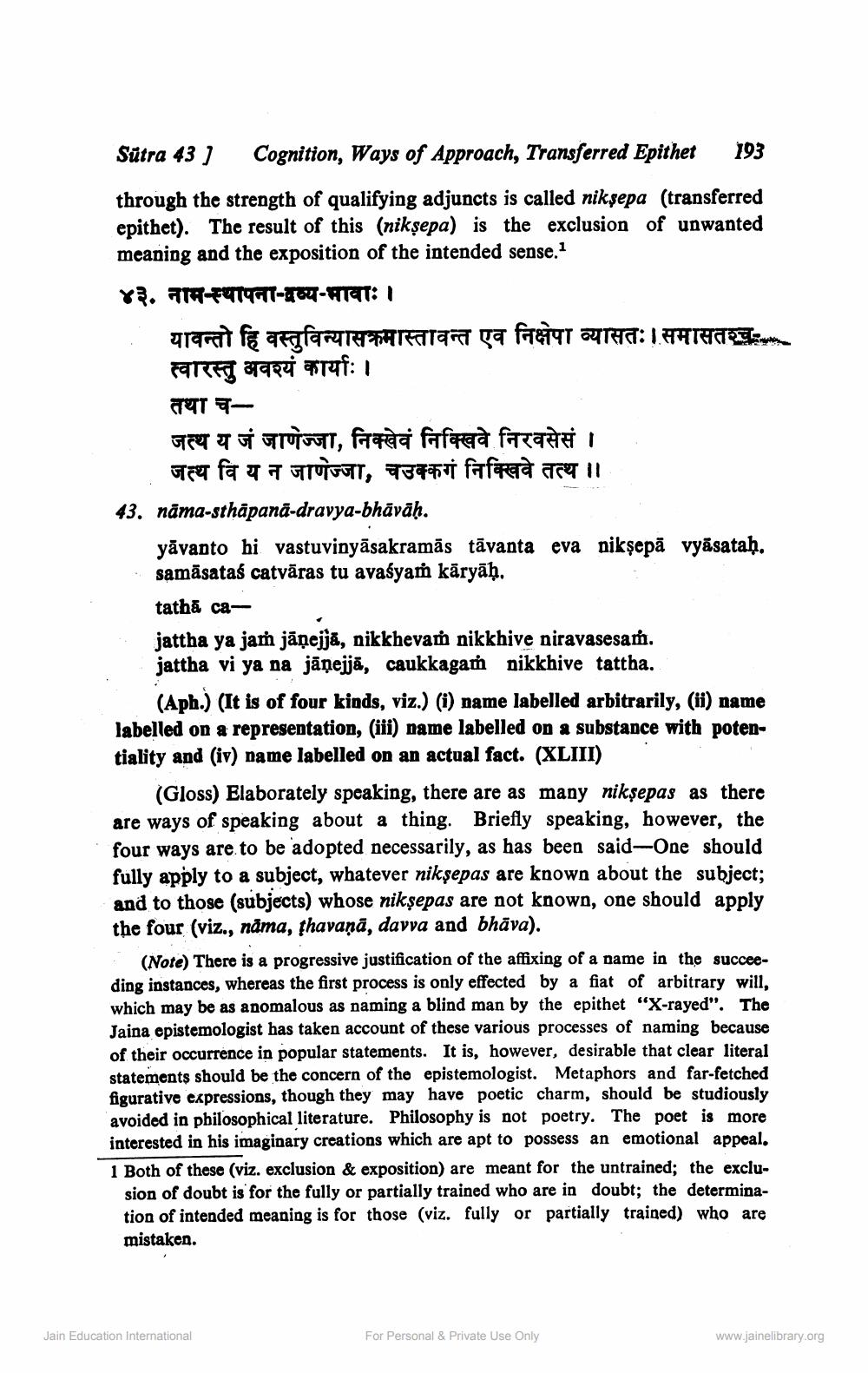________________
Sütra 43 ) Cognition, Ways of Approach, Transferred Epithet 193 through the strength of qualifying adjuncts is called nikșepa (transferred epithet). The result of this (niksepa) is the exclusion of unwanted meaning and the exposition of the intended sense. 83. ATH-FUTTATT-169-HTAT: 1
यावन्तो हि वस्तुविन्यासक्रमास्तावन्त एव निक्षेपा व्यासतः। समासतश्च-... स्वारस्तु अवश्यं कार्याः। तथा चजत्थ य ज जाणेज्जा, निक्खेवं निक्खिवे निरवसेसं । ।
जत्थ वि य न जाणेज्जा, चउक्कगं निक्खिवे तत्थ ॥ 43. näma-sthāpanā-dravya-bhāvāḥ.
yāvanto hi vastuvinyāsakramās tāvanta eva nikṣepă vyāsatah. samāsataś catvāras tu avaśyam kāryāḥ. tathā cajattha ya jam jāņejją, nikkhevari nikkhive niravasesam. jattha vi ya na jāņejjā, caukkaga nikkhive tattha.
(Aph.) (It is of four kinds, viz.) (i) name labelled arbitrarily, (ii) name labelled on a representation, (iii) name labelled on a substance with potentiality and (iv) name labelled on an actual fact. (XLIII)
(Gloss) Elaborately speaking, there are as many nikşepas as there are ways of speaking about a thing. Briefly speaking, however, the four ways are to be adopted necessarily, as has been said-One should fully apply to a subject, whatever nikṣepas are known about the subject; and to those (subjects) whose nikṣepas are not known, one should apply the four (viz., näma, thavaņā, davva and bhāva).
(Note) There is a progressive justification of the affixing of a name in the succeeding instances, whereas the first process is only effected by a fiat of arbitrary will, which may be as anomalous as naming a blind man by the epithet “X-rayed". The Jaina epistemologist has taken account of these various processes of naming because of their occurrence in popular statements. It is, however, desirable that clear literal statements should be the concern of the epistemologist. Metaphors and far-fetched figurative expressions, though they may have poetic charm, should be studiously avoided in philosophical literature. Philosophy is not poetry. The poet is more interested in his imaginary creations which are apt to possess an emotional appeal. 1 Both of these (viz. exclusion & exposition) are meant for the untrained; the exclu
sion of doubt is for the fully or partially trained who are in doubt; the determination of intended meaning is for those (viz. fully or partially trained) who are mistaken.
Jain Education International
For Personal & Private Use Only
www.jainelibrary.org




